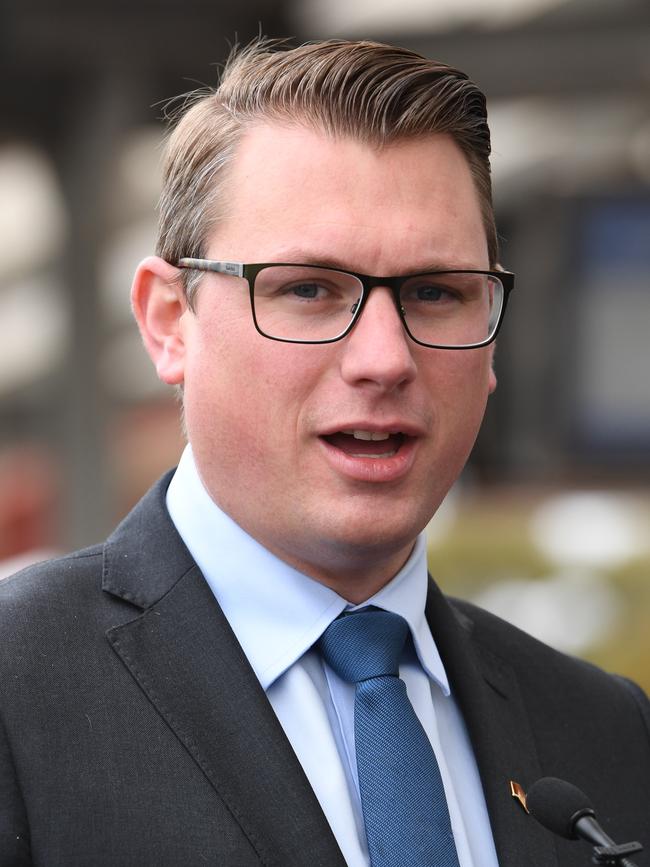Public transport overhaul could include cashless payments post COVID-19
COVID-19 has forced a rethink on plans for the boldest overhaul of Adelaide’s public transport in decades and it could mean never fumbling for change again.
SA News
Don't miss out on the headlines from SA News. Followed categories will be added to My News.
Cash could be scrapped on South Australian buses as the State Government examines at what public transport might look like post-COVID-19.
The largest overhaul of the public transport system in decades has also stalled while the Government determines the effects of the virus.
Transport Minister Stephan Knoll told The Advertiser public consultation on a radical overhaul of bus routes – which was scheduled for May and included Uber-style buses – was now expected to begin in late June.

The Government is also now evaluating a raft of new trends that could affect patronage in the future including:
HEALTH and safety on public transport while there is still no vaccination for COVID-19.
FLEXIBLE working arrangements that could change peak travel times.
GREATER numbers of people working from home.
CASHLESS transactions.
Mr Knoll said bus drivers were not accepting cash for health and hygiene reasons during the pandemic.
“We are considering whether we make that change permanent as we come out of this COVID environment,” Mr Knoll said.
“It helps to make our buses run more smoothly and quickly because drivers don’t have to stop to give them their change.”
He said before COVID-19, about 8 per cent of bus patrons used cash instead of a Metro card.
In March, The Advertiser unveiled Mr Knoll’s bold plans to overhaul Adelaide’s public transport system.
Under the plan, the Government wanted new private operators to introduce more “go zones” – bus services that ran every 15 minutes or less.
But the new services would come at a cost.
MORE NEWS
Hospitality heavy-hitters leading us out of the crisis
AFL open to umpires isolating before Showdown
JobKeeper help to millions fewer as business cops blame
Multiple routes would have to be scrapped, reduced or overhauled to make way for more regular and direct services.
Mr Knoll said the overhaul was aimed at getting more people using public transport.
But, he said the Government had commissioned additional work to understand what new coronavirus- prompted trends would have on the original proposal.
“What we are seeing is that there are more people working from home, more people choosing to shop locally and exist within a smaller environment within their local area as opposed to coming into the city,” he said.
“That has huge implications for how we organise our network. It is still too early to know whether those changes are permanent.”
Opposition Transport spokesman Tom Koutsantonis said it would be unfair to deny people the ability to pay cash on public transport. “How are you going to encourage more people to use public transport when you are making it more difficult for them?,” he said.
